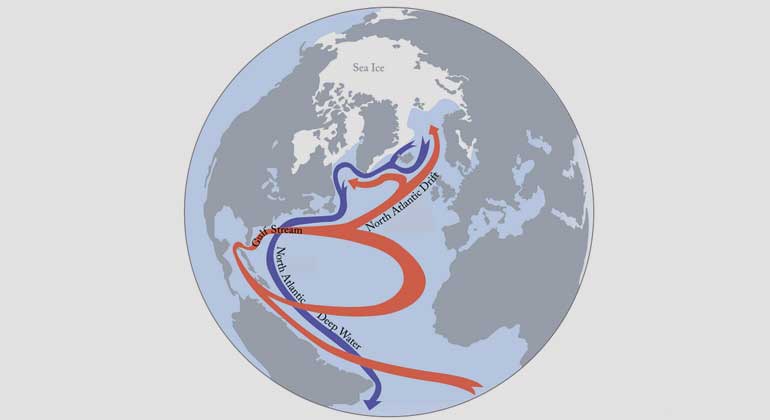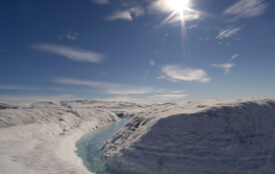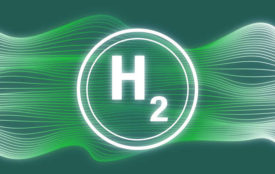Is the Gulf Stream System Slowing?
A slowdown or even collapse of the Gulf Stream System as a result of global warming has long been a concern of climate scientists and has fuelled the imagination of Hollywood.
Regular direct observations of this giant ocean current system do not go back far enough to tell whether there is any long-term trend. However, in recent years indirect evidence is mounting for a remarkable slowdown over the 20th Century.
Stefan Rahmstorf obtained his PhD in oceanography at Victoria University of Wellington in 1990. After this he worked as a scientist at the New Zealand Oceanographic Institute, at the Institute of Marine Science in Kiel and since 1996 at the Potsdam Institute for Climate Impact Research. His work there focuses on the role of the oceans in climate change.
In 1999 Rahmstorf was awarded the $ 1 million Centennial Fellowship Award of the US-based James S. McDonnell foundation. Since 2000 he teaches Physics of the Oceans as a professor at Potsdam University. Rahmstorf is a member of the Academia Europaea and served from 2004–2013 in the German Advisory Council on Global Change (WBGU). He was also one of the lead authors of the 4th Assessment Report of the IPCC. In 2007 he became an Honorary Fellow of the University of Wales and in 2010 a Fellow of the American Geophysical Union.
Dr. Rahmstorf has published over 100 scientific papers (30 of which in the leading Nature and Science journals and PNAS) and co-authored four books. Available in English is Our Threatened Oceans (2009, with Katherine Richardson) and The Climate Crisis (2010, with David Archer).
“Is the Gulf Stream System Slowing?” is a part of series of lectures given at the University of Iceland on May 27th 2016 at the conference “The Past, the Future. How Fast, How Far? Threats Facing the Climate System”
Grafik: S. Rahmstorf (Nature 1997), Creative Commons BY-SA 4.0.








